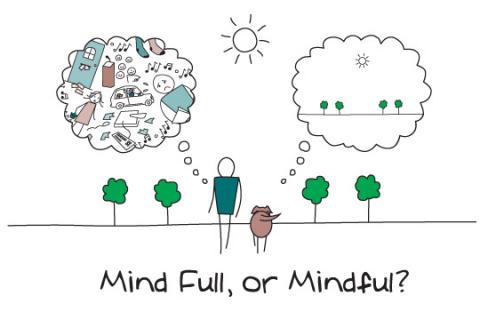 When I started my coaching practice 17 years ago, my clients’ requests were pretty straightforward: they wanted to improve their communication and relationships with their bosses; learn to communicate with their colleagues who spoke English as a second language; and figure out how to motivate their Czech teams.
When I started my coaching practice 17 years ago, my clients’ requests were pretty straightforward: they wanted to improve their communication and relationships with their bosses; learn to communicate with their colleagues who spoke English as a second language; and figure out how to motivate their Czech teams.
Those needs are still relevant and require much of my attention. But in the past few years, our environment of instant access to information and the constant buzz of communication through mobile devices has put a new need at the top of the list for those I coach… How to deal with stress.
At work, the need to perform, to get more done, to gain even a tiny advantage over competitors has always created stress. In our mobile information age, instant feedback loops now add even more stress, and companies are finally acknowledging stress as a problem and working to reduce its damaging consequences.
Helping my clients deal with and reduce stress is one of the reasons why, a few years ago, I began recommending to many of them that they take up a yoga or meditation practice. Having practiced both for several years, suggesting it to clients was a positive step.
Chances are that either you or someone you know has become adept at both practices, as well as the Buddhist tradition of insight meditation, or mindfulness. “Mindfulness” has emerged as a popular buzzword that most of us associate with meditation. For those of you who belong to the rare group of people who haven’t heard about mindfulness and its benefits, let me bring you up to speed.
A year ago, Time magazine published an article “The Mindful Revolution,” describing it as “the science of finding focus in a stressed-out multi-tasking culture.” While many people embrace mindfulness to train their minds to improve their performance and productivity, mindfulness, at its core, is first and foremost about living in the present moment, about “waking up and living in harmony with oneself and the world.”
That quote is from Jon Kabat-Zinn, an American psychologist. Kabat-Zinn created a technique of Mindfulness-Based Stress Reduction (MBSR) that has proven very effective in alleviating stress. MBSR sparked many more mindfulness ideas and practices in the medical world, and similar programs have been developed and implemented in hospitals, veterans’ centers, prisons, schools, and as programs delivered to corporations of all sizes.
Mindfulness also continues to gain popularity as a way of life which can be maintained outside any religion. When espousing mindfulness, practitioners are usually careful to avoid mentioning spirituality. Most of them promote a more down-to-earth approach and compare their mindfulness routine to a muscle. As with any muscle, it is crucial to exercise it and, like our muscles, our attention and awareness strengthens from a regular practice.
To develop mindfulness, the starting point is to watch and pay attention to your thoughts, feelings, bodily sensations and surrounding environment, and “accept” them without judging whether they are right or wrong.
As your thoughts and feelings come into your awareness, then do your best to let them go without holding onto or focusing on any of them in particular.
Finally, rather than analyzing what is happening within your brain or body, the challenge is to experience these thoughts/ feelings/sensations and observe them with as much detachment as possible.
To practice mindfulness, you need to devote time alone to allow the process to take place. Some people do it through meditation, some do it by just being open and receptive to whatever comes into their minds or fields of awareness during their daily routines.
For many people, mindfulness is a mode of being rather than a formal meditation practice, and can be engaged in and maintained outside any formal setting. Personally, I have found that mindfulness is a practical way to be more in touch with myself through a systematic process of self-examination, self-inquiry and mindful action.
While mindfulness might not be the answer to all my needs and expectations, it continues to offer some answers and, at the moment, I’ll settle for that and enjoy learning to live fully in the present moment. With much less stress.
How about you?

